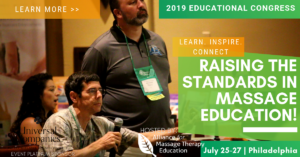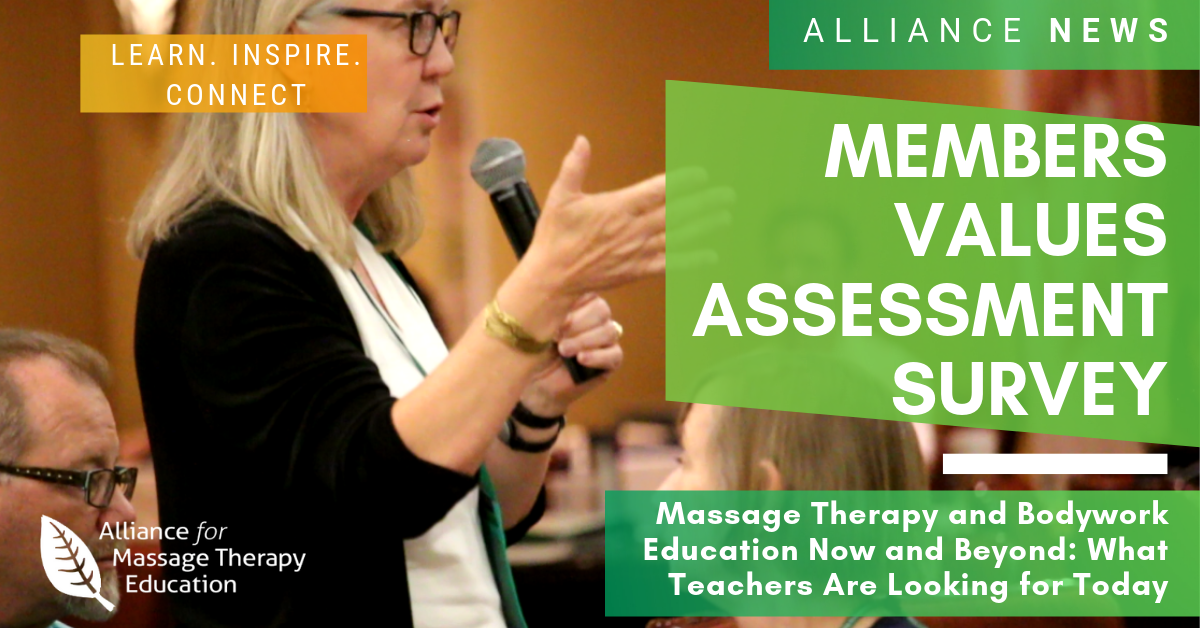
Massage Therapy and Bodywork Education Now and Beyond: What Teachers Are Looking for Today
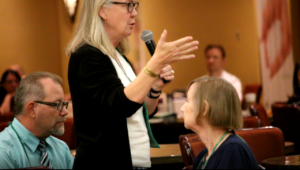
As an independent organization, the Alliance for Massage Therapy Education (AFMTE) needs your voice, experience, and opinions to help strengthen and improve the field of massage and bodywork.
Recently, we asked our members about your values and what you thought was important and needed. Despite your diverse backgrounds, specialties, and positions as educators, clinic managers, and continuing education providers, the need for foundational training support for new teachers and for more experienced teachers was resounding.
Educators Today: Findings from the AFMTE Massage & Bodywork Educators’ Values Survey
Most educators and members of AFMTE have been practicing for more than a decade, according to our recent Massage & Bodywork Educators’ Values Survey.
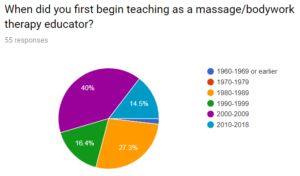
AFMTE Members’ Value Assessment Survey indicated our membership includes educators with many decades of teaching experience, although the majority have become educators since 2000.
While 40% started in 2000-09, another 27% started in 1980-89. Backed by training, certifications, and more than a decade of experience, 90.9% of respondents agreed the industry could benefit from higher educational standards for educators.
Further, our survey responses indicated a gendered pattern in today’s educator. 74% of educators who completed our survey identify as women, 26% identified as men, and 2% indicated non-binary gender identities (respondents could select any identity that applied).
This finding from our survey respondents is interesting given industry gender patterns where 88% of practitioners are female.
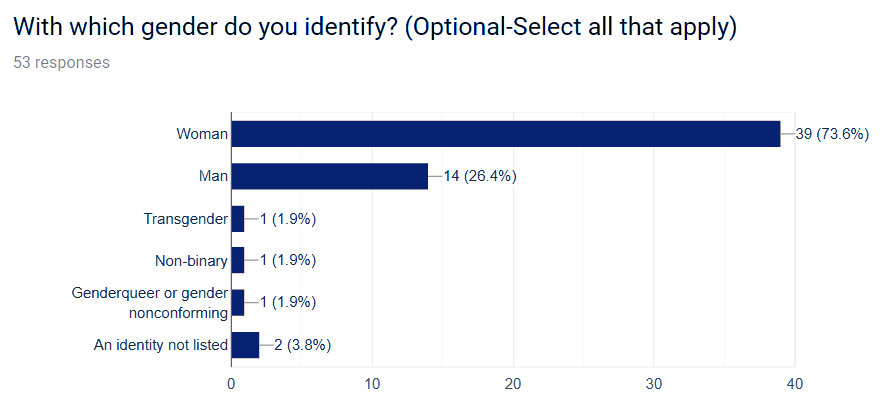
AFMTE Members’ Value Assessment Survey indicated among our membership of massage educators, 74% identify as female, 26% as male, 2% as non-binary gender.
Improved Education Standards Would Help
Overall, your qualitative feedback indicated perceptions of inconsistencies in beginner-level education, as well as in teacher training. Comments also emphasized the link between educational standards and more widespread opportunities to work in medical settings.
Overall, the survey results indicated that improved educational standards may help:
- Develop a strong foundational level.
- Establish confidence within the staff by knowing that standards are consistent and science-based.
- Improved job role assignments based on education levels.
- Well-defined training and specialties.
- Quality training
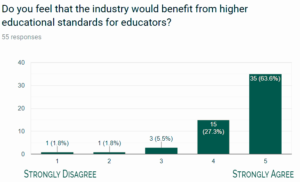
90.1% of recipients agree or strongly agree that the massage profession would benefit from higher educational standards
AFMTE is deeply committed to promoting effective teaching of students and professionals as a key step in the evolution of massage therapy and bodywork.
Concerns Indicated by Massage Therapy Educators
Most immediately, according to our recent survey, our members are most concerned about:
- Finding qualified teachers and teacher training.
- Marketing and technology resources.
- The cost of credentialing.
- The levels of enrollment needed in an educational program.
AFMTE’s members’ comments also indicated a growing need for educational standards and training that promotes evidence-based and science-informed practice and clinical reasoning to allow massage therapy educators to become better seen as allies in traditional medical settings. Comments indicated perceptions that this may benefit therapists by giving them more credibility in the industry and also benefit clients by giving them confidence that their practitioners advice and suggestions are backed by science and research.
Our members also pointed to the need for teacher training. Comments expressed that teacher training may help ensure that established standards are consistent across states.
While most survey respondents noted that they were satisfied with their organization’s policies and compensation package, there was a stated need for improved leadership and a larger pool of opportunities for professional development.
So, while there is a strong focus on “teaching the teacher,” our members remind us that we must build in professional development for our highly experienced and skilled teachers to brush up on skills and stay in tune with the latest developments.
Influence Practice, Policy, and Teacher Training
While the implementation and rollout of AFMTE’s National Teacher Education Standards Project (NTESP) will take time, training and access to resources, AFMTE is now offering a new credential for massage therapy educators who demonstrate competency in the AFMTE Core Competencies standards, which aims to create a culture of teaching excellence in our field.
Participate hands-on in discussions and sessions that help to influence policy and training for the future of massage therapy and bodywork education. AFMTE’s next Educational Congress is scheduled for July 25-27, 2019 in historic Philadelphia, PA.
What can you expect? Inspiring speakers & thoughtful dialogue, breakout sessions, and information about fellowships. Listen and be heard. There will even be two sessions about AFMTE Educator Certification! We hope you will join us!

